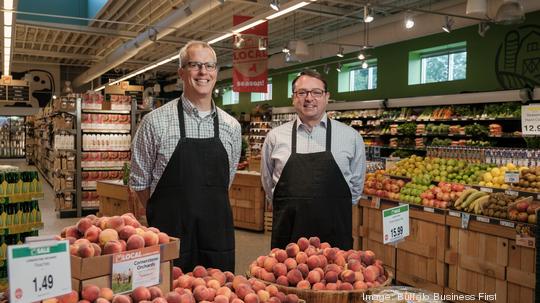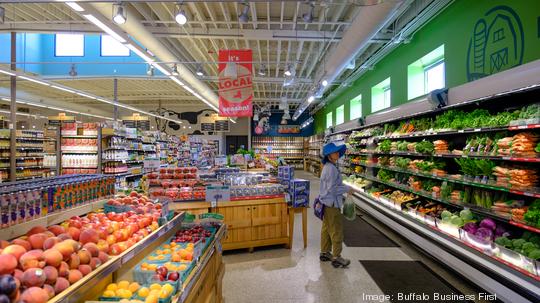
For local vendors, the Lexington Cooperative Market might just be the local version of Shark Tank.
Just like the ABC television show features entrepreneurs pitching investors, Tim Bartlett, co-op general manager, hears from local people looking to place their projects on his shelves.
“The local products are really a centerpiece of what we offer the community,” he said.
The co-op, with stores on Elmwood Avenue and Hertel Avenue, stocks about 1,250 local products, according to Chris Boyle, category manager.
The co-op evaluates potential vendors on broad appeal, uniqueness, the look of the label, if the product will work in the store's point of sales and ability of the business to scale up to meet product demand.
Once a vendor passes that vetting process, the Co-op works with the small-business owner to fine-tune aspects such as labeling, marketing and launch. Often the co-op is a vendor’s first wholesale account.
“I love growing someone’s business with them so they can, and we can be successful,” Boyle said. “It takes work, but when you really get there, there’s nothing more fulfilling.”

About half the time, a vendor reaches out to the co-op directly and the other half, a staff member or customer makes a recommendation. It's hard to say what percentage of those vendors end up in the co-op, Bartlett said, but the co-op prioritizes local vendors over national brands.
One new product to hit the co-op’s shelves on Aug. 18 is The Bloom & Rose's knishes – traditional onion and potato knish and spinach and feta knish.
The co-op will be Bloom & Rose’s biggest wholesale account, said Josh Lankford, one of the owners. The business is upgrading equipment to meet potential demand from the Co-op account.
“This kind of thing is our opportunity to move up a little bit,” he said. “They draw in people from all over the city and Western New York. We know there’s a lot of visibility and opportunities to sell as long as we’re willing to put in the work.”
Co-op staff reached out to the business after a store manager tried the knishes at a farmers’ market. The product launch has been about two months in the making, Boyle said. The process from first meet to product on the shelves ranges from six weeks to a year.
Lankford encouraged other small-business owners to reach out to others who have gone through the Co-op process. As for scaling up a business, don’t give up and show up every day.
“If we didn’t show up for the really bad days as well as the good ones, we would not be working with someone like the Co-op,” he said. “We might not be working at all.”









